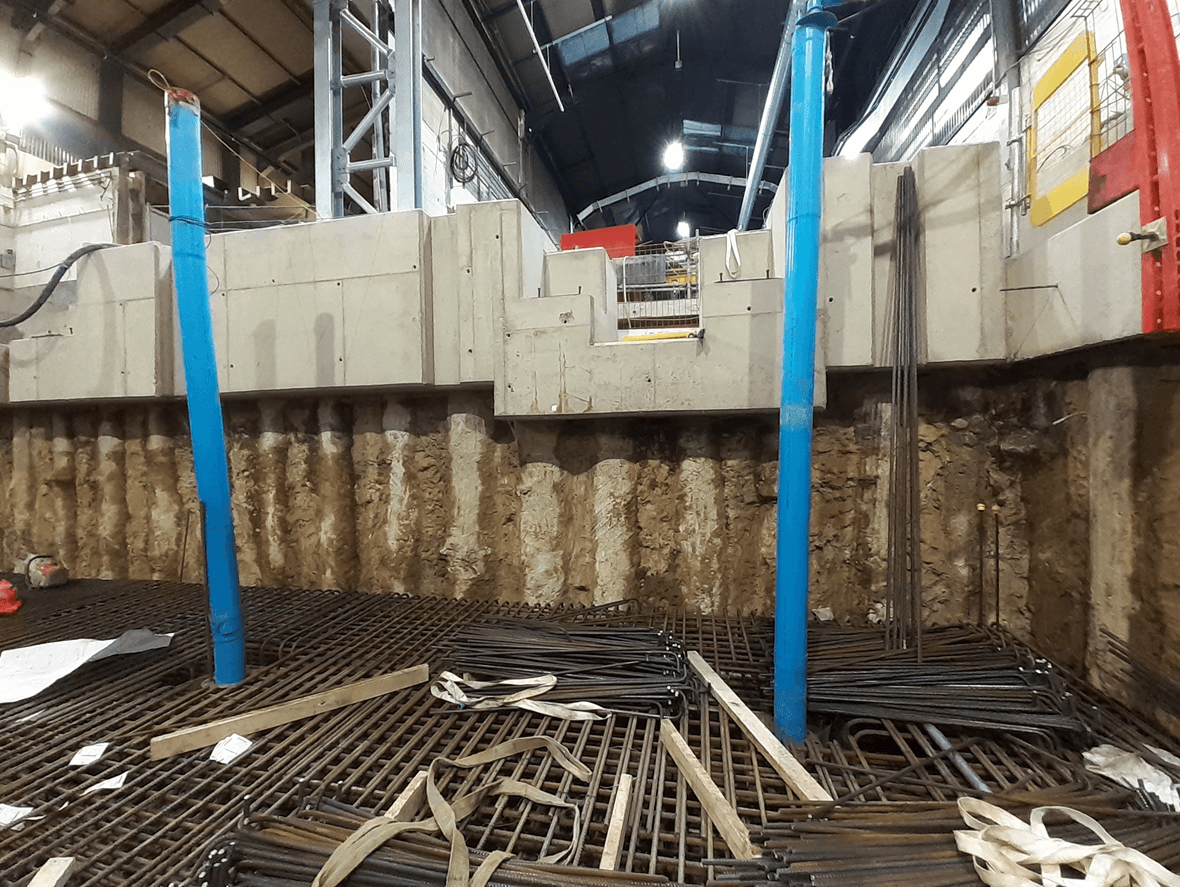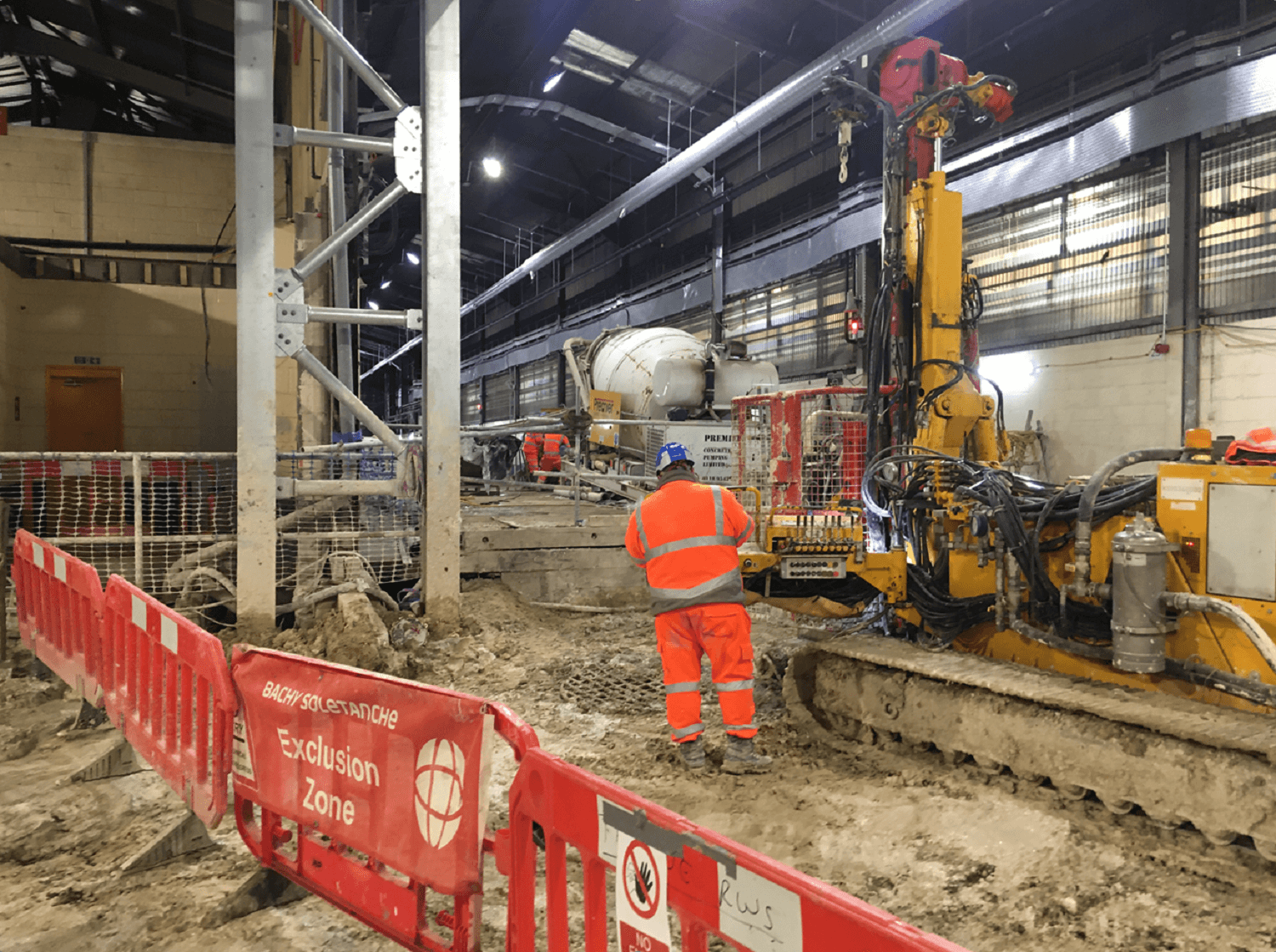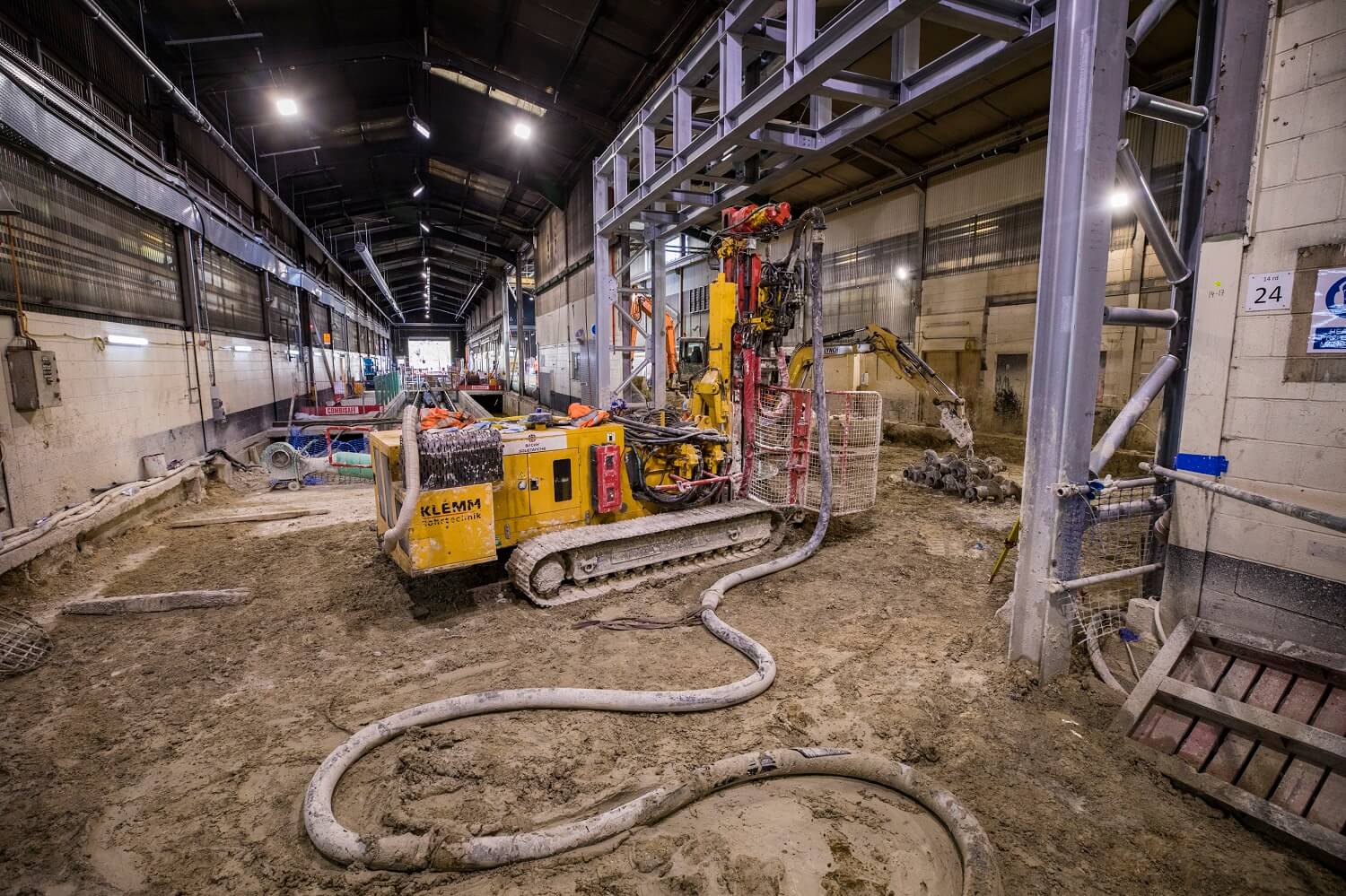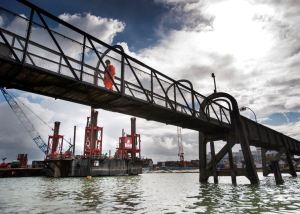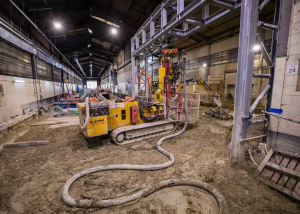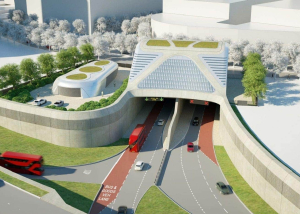THE SCHEME
Norwich Crown Point Depot required upgrading to provide improved service and maintenance facilities for Abellio Greater Anglia’s new fleet of rolling stock. The upgrade includes provisions of new sidings, maintenance building extension, provision of a bogie drop pit, new gantries and services as well as modifying the track, overhead line equipment and signalling.
Bachy Soletanche was appointed by Taylor Woodrow to design and build a secant piled retaining wall with restricted access, low-headroom piling.
DESIGN AND LOGISTICAL PLANNING
The construction phase was undertaken with full depot operations continuing, which presented the team with operational and logistical challenges.
Bachy Soletanche worked closely with Taylor Woodrow during a twelve-month period prior to construction commencing. During this early contractor phase, discussions were held with the design team and client to develop the most efficient solution whilst minimising the impact on the live depot.
The team opted for an installation process using low headroom piling methods, which reduced the amount of demolition and enabling works required to complete the work.
CONSTRUCTION
The project required the construction of secant bored piles to create a box, approximately 45m in length. The box was formed using the sectional flight auger piling technique to construct 59 hard bored cased piles, that were 680/600mm in diameter and 69 soft bored piles that were 600mm in diameter – all piles were bored to approximately 12m in depth.
The hard piles were cased to prevent any deflection, improve verticality and reduce any potential overbreak in the overlying gravels. The design called for full length reinforcement cages in the hard piles, this provided a challenge to the team due to the restricted working conditions. The solution saw the cages fabricated in sections and then joined during installation using the SUPERLATCH® quick joint system.
In addition to the box, the team installed 21 sectional flight auger tension piles, which were 600mm in diameter and bored to a depth of 17.5m – the purpose of these permanent piles is to prevent any uplift from the base slab that may have occurred due to the high groundwater level.
The confined nature of working in the existing engine shed meant the team were operating in just five metres of headroom, as well as in close proximity to the walls of the shed. The team ensured there was sufficient working space and resource to deliver the project.
The efficient scheduling of site logistics and construction planning ensured minimal disruption to the depot’s on-going operations. The project team completed the work five days ahead of schedule, ready for the next stage of the upgrade to commence.
